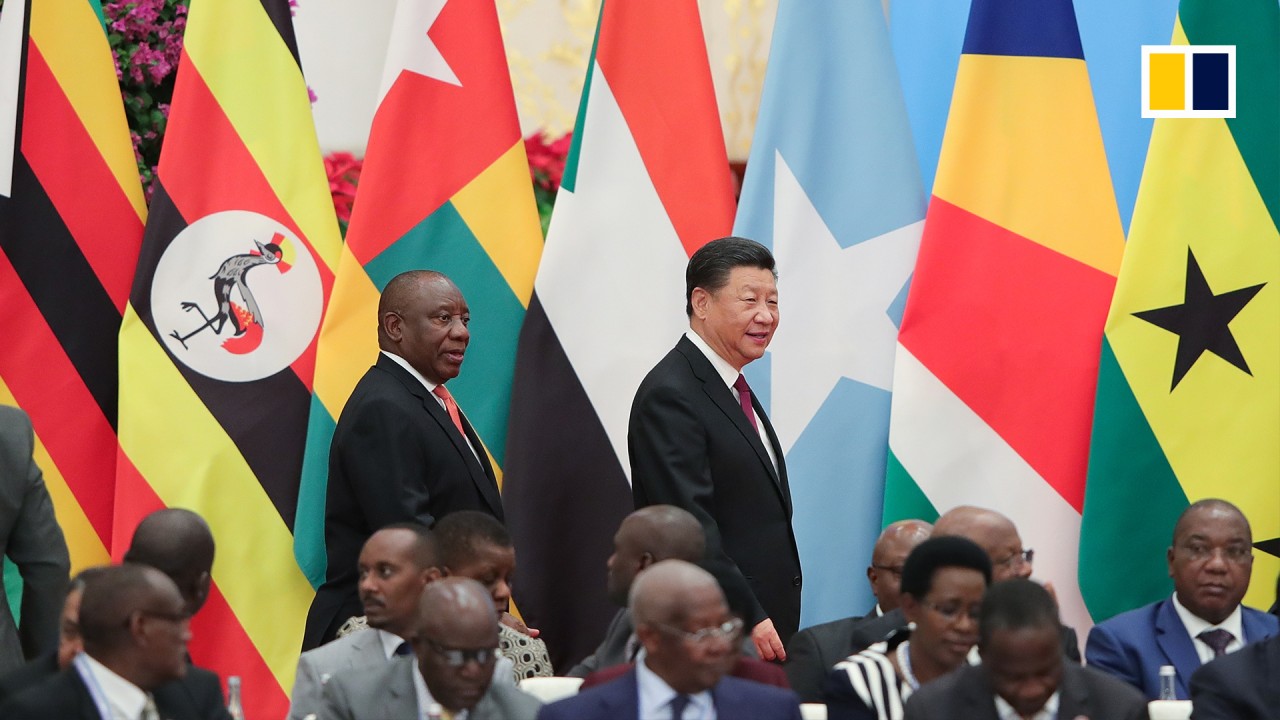They could in future develop into an army of influencers who are positive about China and its activities as Africa’s largest trading partner and financier of multi-billion dollar projects under the Belt and Road Initiative, the observers said.
“I had an offer to study at a European university, but my field of interest led me to study in China,” said Cavince, who now works as an international relations specialist in Nairobi. He added that the quality of the Chinese education system has improved and is now in line with the qualification levels in Europe and North America.
According to Cavince, the cost of living for foreign students is significantly lower and they also receive better support, so that many parents who are willing to privately finance their children’s education abroad are increasingly turning to China.
When the last Chinese statistics on the number of international students were published four years ago, China was surpassed only by France as the most popular overseas study destination for African students.
According to the Carnegie Endowment for International Peace, a Washington-based think tank, the United States took third place.
At the Forum on China-Africa Cooperation (FOCAC) in 2018, Chinese President Xi Jinping promised Africans 50,000 scholarships and an equal number of training opportunities in China over a three-year period.
This promise overshadowed similar scholarship programs for African students in France, the UK and the US.
According to China’s Ministry of Education, there were 81,562 African students studying in China in 2018, of whom 6,385 were pursuing doctoral degrees. That’s 17 percent of the country’s international student population and a significant increase from two percent a decade earlier.
International student enrollment at Chinese universities was hit during the pandemic by China’s strict zero-Covid policy. China did not relax its lockdown rules until January 2023.
Unlike previous summits, China made no commitment on the number of scholarships at the 2021 FOCAC in Senegal, although Xi said in a virtual address that Beijing would continue to train professionals under the program.
China is expected to make a further commitment regarding scholarships for African students at the next FOCAC, scheduled for September in Beijing.
Sociologist Benjamin Mulvey of the University of Glasgow was cautious about the data on China’s number of foreign students, pointing out that China also includes students in non-academic language programs, while other countries tend to count only university-level studies.
“So China may not be the second most popular destination,” Mulvey said. “Also, they haven’t released statistics for an academic year since 2018, so I’m not sure that’s still true.”
However, he noted that the activity of Chinese companies across Africa has led African students to believe that knowledge of Chinese and an understanding of Chinese culture would be valued in the job market in their home countries.
“They tend to believe that these skills are valued because of their rarity and therefore they are very employable,” says Mulvey, author of Mapping international student mobility between Africa and China.

Cliff Mboya, another Kenyan who won a four-year scholarship to study for a doctorate in China, said his background in journalism and international relations “piqued my interest” in the country.
Mboya, who came to Shanghai’s Fudan University in 2016 to study international politics, said he was also fascinated by China’s massive engagement in African countries, which piqued his curiosity about China.
“My academic life has been interesting. I have learned a lot about the country, the people and the culture. I realised how little many of us on the continent know about China and its people. It has been a revelation and a wonderful experience,” he said.
According to Mboya, the Chinese student visa system is open and “once you get your university admission or scholarship, you are almost guaranteed to get your visa to China.”
Obert Hodzi, senior lecturer and associate professor of politics at the University of Liverpool, said entry requirements at most Chinese universities are less stringent than at Western universities.
African students can more easily gain admission to universities in China for medicine, engineering and other prestigious courses, he said. It is also comparatively easier to get a student visa for China than for studying in France, Britain or the USA.
“This is one of the main reasons why the anti-immigration movement in the West is growing stronger and more right-wing political parties are campaigning for a reduction in the number of illegal and legal immigrants, including students,” said Hodzi.
According to Yun Sun, co-director of the East Asia Program and director of the China Program at the Washington-based Stimson Center, “China wants to win people’s hearts and minds” by offering African students opportunities such as scholarships.
“We hope that the familiarity and affinity these opportunities bring will bring China closer to African youth and future generations,” she said, adding that the scholarships are an affordable way for students from Africa to receive a higher education in a major power.
“The opportunities offered by China are also very attractive,” Sun said.
Hodzi, of the University of Liverpool, said the scholarships – most of which come from the central government – were part of Beijing’s “long-term strategy to build an alumni base of African students who have a greater appreciation for Chinese education, culture and way of doing things”.
XN Iraki, an economics professor at the University of Nairobi, said China has been generous in its financing and is a counterweight to the restrictions imposed by Western countries, especially since September 11, 2001.
He speculated that Beijing may be pursuing a strategy similar to the 1960 U.S. scholarship program, which was organized in part by then-presidential candidate John F. Kennedy and African independence activist Tom Mboya.
“China could emulate the US airlift that existed for Kenyan students before independence and for students from the Soviet republics after the end of the Cold War,” Iraki said, referring to the US scholarships offered under the program.
However, when it comes to integrating African trainees into the Chinese labor market, there are fewer options, warned Sun of the Stimson Centre.
“The language barrier, the relative proximity of society and the difficulty of finding a job with local Chinese employers are all factors,” she said.
According to Sun, the expectation is that international students will return home and promote relations between their countries and China. “Staying in China is not part of China’s aspirations.”
Mboya – who is currently in South Africa working as a postdoctoral fellow at the University of Johannesburg’s Centre for Africa-China Studies – said more students are returning home after completing their studies because the programmes are designed accordingly.
“You should study and then return to your country … to serve your country,” he said.
Nevertheless, according to Cavince, new opportunities are opening up to encourage foreign students to obtain work permits in China, especially in the high-tech sector.
“As China internationalizes in education and research, we see young Africans finding job opportunities in specialized research institutes dealing with African affairs,” he said.





